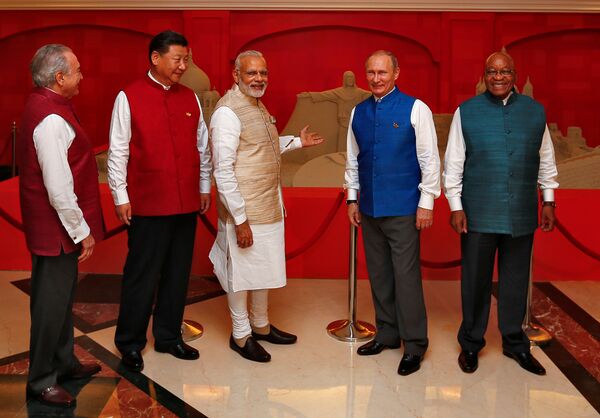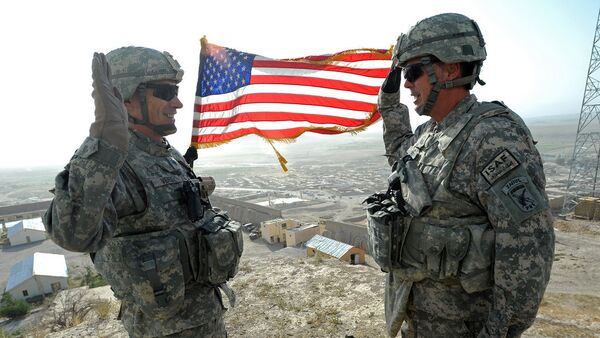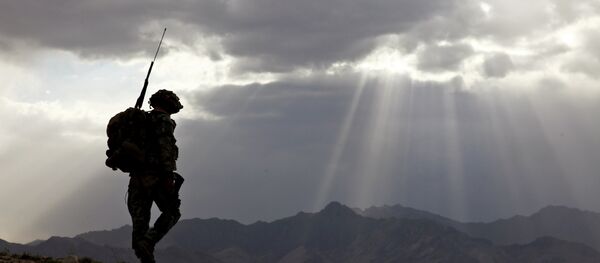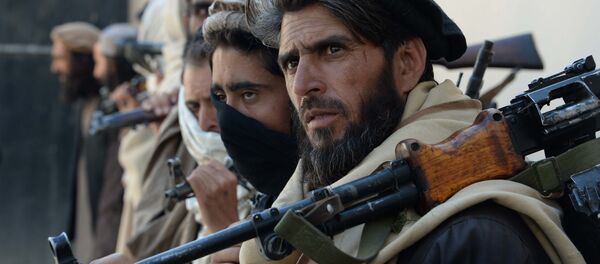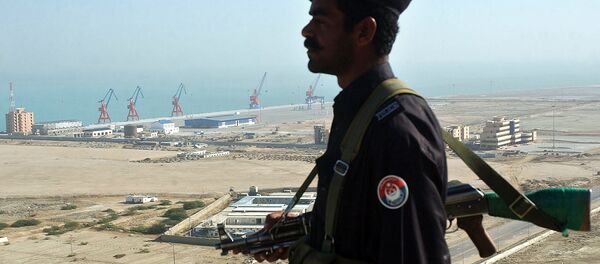On Monday, US President Donald Trump unveiled an updated US strategy for Afghanistan, pledging to wage war against the Taliban and other Islamist groups more aggressively than his predecessor, and approving the deployment of an additional 4,000 US troops.
"Do we like Trump's decision to 'stay in Afghanistan'?" political contributor Dmitri Kosyrev asked in a recent article for RIA Novosti. "It depends on what its real meaning is. If one believes the US media, which is monopolized by the Democrats, it's simple: there is no meaning, only stupidity, because it's Trump."
"But there are also countries which understand very well the meaning of what is happening," Kosyrev added. "They include Afghanistan itself, Pakistan, India and China. They understand that [the strategy] is not about Afghanistan at all. Rather, Washington is looking to put India and China – two powers which are overtaking the US, at loggerheads. Factually, this is a very simple, clear policy."
This means that strategically speaking, "no military victory over terrorism can be expected; and Trump himself doesn't explain what a win would mean. At best, he's talking about avoiding defeat, saying that the US cannot withdraw, etc."
"But it's only to us that the US strategy seems incomprehensible," Kosyrev stressed. "To observers from Delhi, Islamabad, Beijing and Kabul, everything is clear. The main sensation in Trump's speech was his stern warning to Pakistan over its support of the same terrorists that the US have been unable to defeat since 2001. Instead, India, Pakistan's traditional adversary since 1947, has been invited to cooperate in Afghanistan. Alliances are shifting."
In this connection, the observer noted that it cannot be overlooked that the main economic and political players in Afghanistan isn't the US and its allies, but India and China. "Such was the unexpected result of the war: The US fought in the country, losing over 2,500 troops, but the ones investing into the Afghani economy, and thereby holding influence are its neighbors in Delhi and Beijing."
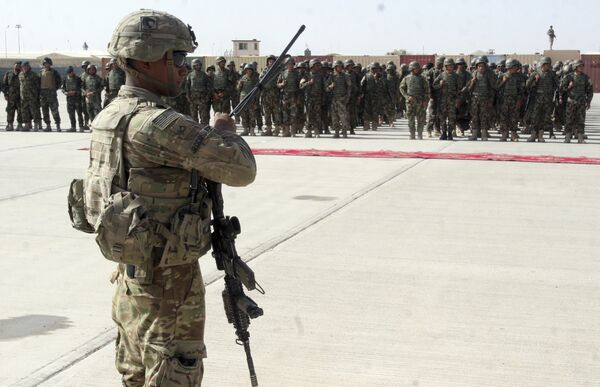
"And the two countries don't interfere with one another," Kosyrev added. "The Chinese engage in mining and infrastructure, the Indians in infrastructure, trade, and other small business. Gradually, with the help of the mechanisms in BRICS, the Shanghai Cooperation Organization, and others, they will cooperate."
At the same time, the journalist recalled, its geopolitics 101 that "Pakistan is a traditional enemy of India, and once a US partner, including in the military sphere. Today, Islamabad is coming increasingly under China's protection, something not conducive to Indian-Chinese friendship. On the whole, the relationship between Beijing and Delhi is difficult to assess, Pakistan aside. Some see rivalry, others cooperation. But in fact there is space for both."
The main question for Islamabad, according to the analyst, is whether Beijing can fully replace Washington as its main factor amid the rapprochement in India-US relations.
"China (which, incidentally, wasn't mentioned at all in Trump's Monday speech), reacted to it gloomily. They've said that Pakistan is on the front line in the fight against terror…that Beijing is establishing cooperation between Afghanistan and Pakistan. Basically, they're telling Washington not to meddle in the affairs of others. In general, it's clear that Beijing is trapped on the side of the Pakistani patrons of Afghan and other terrorism, and thus on India's wrong side."
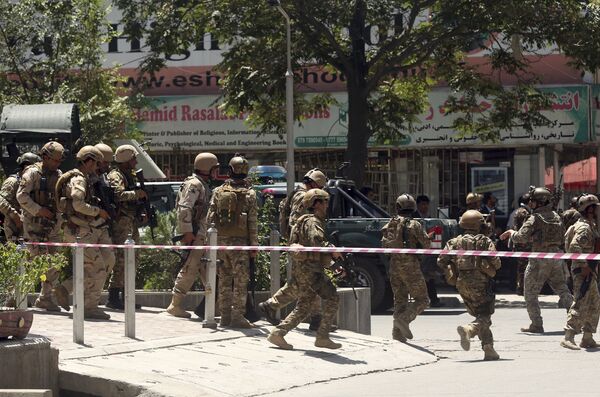
"And India too is trapped," Kosyrev noted. "For decades, the country tried to explain to Washington that the main source of terrorism in the region is Pakistan, serving as a base for Afghan groups, and for those who would do harm to India. And suddenly Washington has heard them."
"But receiving as yet unclear US support in the Indo-Pakistani war for influence in Afghanistan is a trifle. The trap for India is that it is forced to become America's regional partner in the fight against China," the observer explained. In other words, while Delhi may be tempted to take the US up on its offer of cooperation in Afghanistan, such cooperation could lead to a situation where the adversary, once only Pakistan, will now also include China, while the US, as usual, will remain safely beyond the horizon and across the ocean.
In this context, Kosyrev stressed that the upcoming meeting and discussions between Chinese and Indian leaders at the BRICS Summit next month will be important. "For starters, it is important simply for the meeting to take place. Second, both sides can at least calmly evaluate the meaning of the new US strategy, which concerns much more than Afghanistan or the fight against terrorism."
